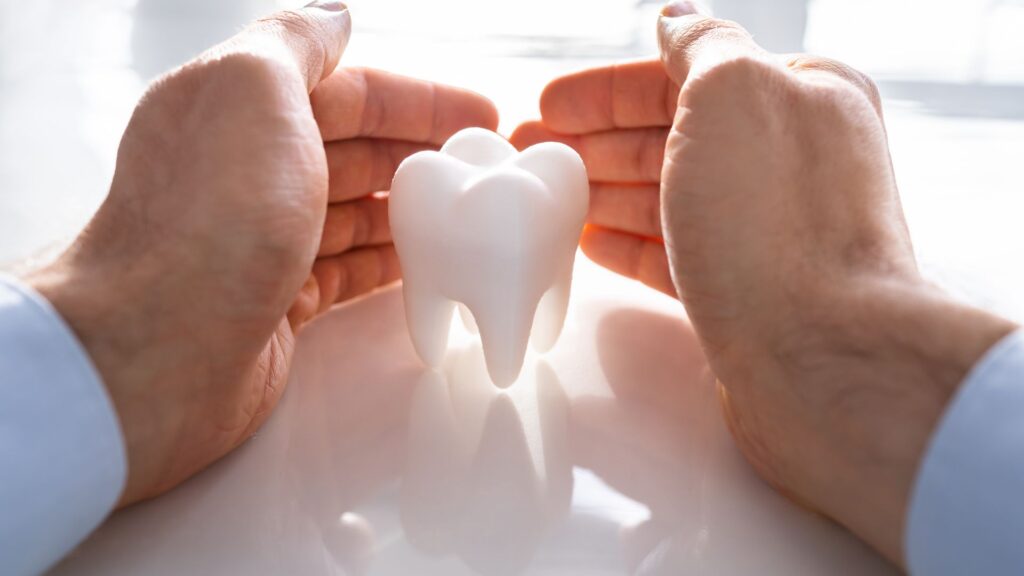A confident smile is about more than appearance. It influences the way you speak, the foods you enjoy, and how comfortable you feel in everyday conversations. When teeth are missing, even simple things like pronouncing words clearly or biting into your favourite meal can become frustrating. Many people silently struggle with these changes, unsure whether to leave the gap, try dentures, or consider dental implants in Mira Road.
The choice matters. Each option affects speech, chewing strength, and overall lifestyle in very different ways. Understanding these differences is the first step toward making an informed decision that restores not just your smile but also your Confidence in social and professional life.
Impact of Tooth Gaps on Speech and Eating
When a tooth is lost, it changes how the tongue, lips, and airflow interact in the mouth. Even a single gap can make sounds like “s” or “th” difficult to pronounce clearly. People often notice a slight lisp or mumbling that did not exist before.
Eating is also directly affected. Missing teeth reduce bite force, making it harder to chew tougher foods like nuts, fruits, or vegetables. This can lead to avoiding certain foods altogether and relying on softer, less nutritious options. Over time, this limitation may impact overall health and diet.
Missing teeth can alter the way sound waves are produced in the mouth, leading to lisps or slurred speech.
Dentures: Advantages and Functional Limitations
Dentures have long been used as a replacement for missing teeth. They can restore the appearance of a complete smile and provide some support for chewing. For many, they are an affordable and non-surgical solution.
However, dentures come with challenges. Because they are removable, they often shift slightly while speaking, leading to slurred words or mumbling.
Some people describe clicking sounds or a lack of clarity in their speech. Chewing efficiency is also reduced. Harder foods may remain difficult to bite or chew, forcing dietary adjustments.
Traditional dentures can slip out of place while talking, causing mumbling or slurred speech.
Adaptation can also be frustrating. Saliva flow may increase at first, taste may feel altered, and adhesives are often needed to secure them. Over time, dentures may accelerate bone loss in the jaw since they do not replace the root of the tooth. This can change facial appearance and reduce long-term oral health stability.

Dental Implants: Superior Functionality, Speech, and Eating
Dental implants stand apart because they replace both the crown and the root of the tooth. Through osseointegration, the implant fuses with the jawbone, creating a secure base that feels and functions like a natural tooth.
When it comes to eating, implants restore near-natural bite force. Patients are able to chew confidently, enjoy a broader range of foods, and maintain a healthier, balanced diet. Unlike dentures, implants do not shift, so harder or crunchy foods are no longer avoided.
Speech clarity also improves significantly. Because implants remain fixed, they support the tongue and lips in forming sounds naturally. Patients report greater clarity when speaking in social or professional situations.
Dental implants are securely anchored in the jawbone… allowing patients to chew with confidence and enjoy a varied diet without restrictions.
In addition to speech and eating, implants help preserve jawbone health, preventing the resorption that follows tooth loss. They also provide a natural look and long-term durability, making them a lifestyle choice as much as a dental treatment.
Because dental implants are fixed securely in your mouth, they function just like natural teeth, supporting your tongue and lips for clear pronunciation.
Lifestyle Benefits: Confidence, Diet, and Social Ease
Tooth replacement is not only about chewing efficiency. It is also about Confidence in daily life. People with dental implants in Mira Road often share how much easier it is to smile freely, eat at social gatherings, and speak without hesitation.
Nutrition is another critical factor. With restored chewing strength, a person can enjoy a varied diet that includes fruits, vegetables, and proteins. This supports better health and energy compared to a softer, restricted diet often linked with dentures or gaps.
Social interactions, from job interviews to family events, become less stressful when there is no fear of dentures slipping or speech sounding unclear. This improvement in self-esteem is one of the most cited lifestyle benefits of implants.

Functional Comparison of Tooth Replacement Options
|
Feature |
Gaps (No Replacement) | Dentures |
Dental Implants |
| Speech Stability | Poor | Moderate, may slip | High, fixed support |
| Chewing Efficiency | Weak | Limited | Near-natural |
| Nutrition | Restricted diet | Softer foods only | Full food variety |
| Comfort & Confidence | Low | Moderate | High, natural feel |
| Bone Health | Ongoing loss | Accelerated loss | Preserves structure |
| Adaptation | N/A | Longer adjustment | Quick adaptation |
| Maintenance | None | Adjustments needed | Normal oral care |
FAQs
Do dental implants in Mira Road improve speech better than dentures?
Yes. Implants remain firmly anchored, allowing the tongue and lips to move naturally. This provides more precise pronunciation, unlike dentures, which may slip and interfere with speech clarity.
How long does it take to adapt to speaking and eating with new dental implants?
Most people adjust within a few weeks. Speech becomes clearer quickly, and chewing feels more natural than with dentures. Adaptation is generally easier than with removable replacements.
Can I eat all my favourite foods with dental implants?
Yes. Dental implants restore natural bite force, allowing you to chew comfortably. Unlike dentures, implants let you enjoy crunchy, chewy, or tough foods without fear of discomfort or slippage.
Do implants help prevent jawbone loss?
Yes. Dental implants stimulate the jawbone through osseointegration, similar to natural tooth roots. This helps preserve bone density and supports facial structure, reducing the risk of long-term changes.
Are there any risks or limitations with dental implants?
Yes. Implant surgery requires healing time, and not everyone is an immediate candidate. A qualified dentist must assess bone density, health conditions, and lifestyle factors.
How should I choose between dentures and implants?
It depends on budget, health, and personal needs. Dentures are affordable but less stable. Implants cost more initially but provide lasting stability, speech clarity, and Confidence. Professional consultation is essential.
Conclusion
Tooth replacement choices go beyond aesthetics. Gaps disrupt speech and eating, dentures provide partial solutions with limitations, and dental implants offer the closest experience to natural teeth. Implants improve clarity in speech, restore chewing efficiency, preserve bone health, and contribute to greater self-confidence.
If you are considering dental implants in Mira Road, the best way to decide whether implants are suitable for your needs is to consult with a dental professional.
Sources & References
- Dental Council of India (DCI) – Regulations on ethical dental practice and professional standards: https://dciindia.gov.in
- Ministry of Health & Family Welfare, Government of India – National Oral Health Programme, preventive and restorative guidelines: https://main.mohfw.gov.in
- World Health Organization (WHO) – Oral health fact sheets and policy guidance on tooth loss and its health impact: https://www.who.int/health-topics/oral-health
- National Institutes of Health (NIH) – Research and clinical data on dental implants, bone loss, and oral rehabilitation: https://www.ncbi.nlm.nih.gov
- Indian Council of Medical Research (ICMR) – Oral health research initiatives and public health insights: https://www.icmr.nic.in






